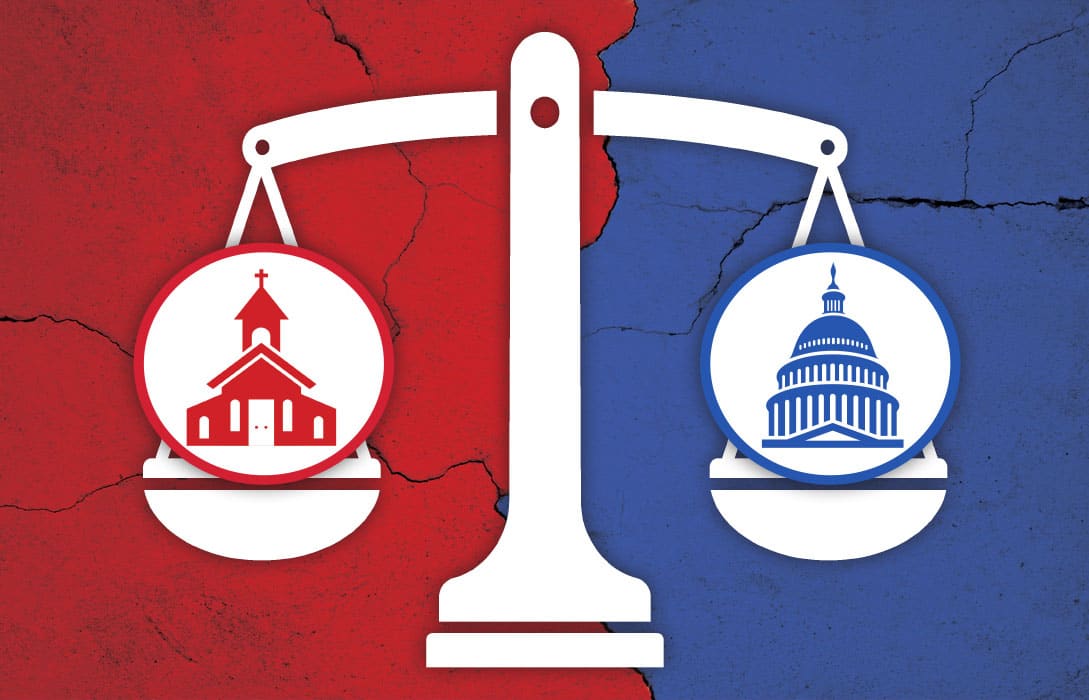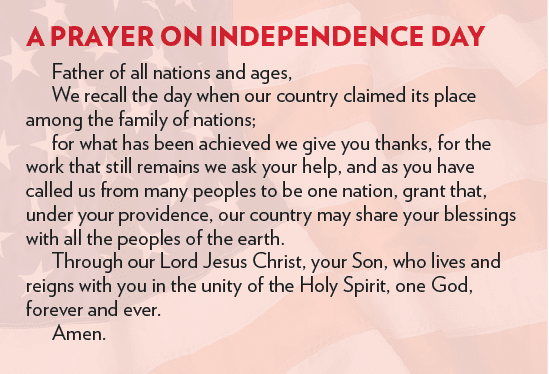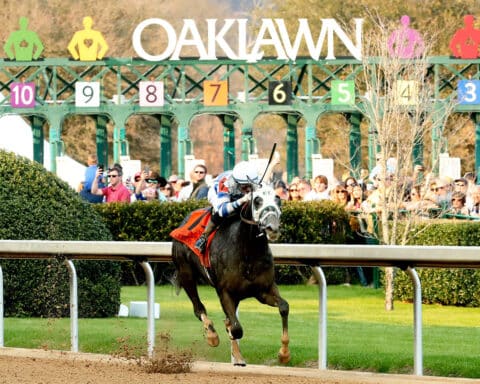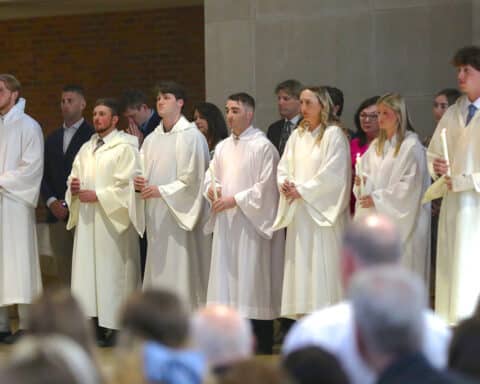Every year, Americans celebrate Independence Day, the anniversary of the signing of the Declaration of Independence. On this day, we affirm the Declaration’s assertion that humans are endowed with unalienable rights to “Life, Liberty and the pursuit of Happiness,” and that the purpose of government is to secure those rights. When the government becomes destructive of those rights, the Declaration continues, it is the prerogative of the people to abolish and replace that power with one that protects them. The Continental Congress, having determined that the prevailing government had indeed become destructive of those rights, declared on July 4, 1776, that the “united States of America” were to be “Free and Independent States,” founded upon those unalienable rights.
Thus, the United States, perhaps unique in the history of the world at the time, was established upon a set of moral doctrines, rather than a common ethnic or demographic heritage. Of course, the population represented by the Continental Congress (which was not everyone who lived in what became the United States) broadly shared a common language and ethnic heritage. But this was not the basis for the new nation. By its own confession, the United States was founded upon a moral theory, not a shared demographic, racial, or linguistic community. It is difficult to overstate how important this is for a consideration of the attribute — or even possibility — of patriotism. The nature of the founding has at least three implications for the way we Catholics might understand both citizenship and patriotism.
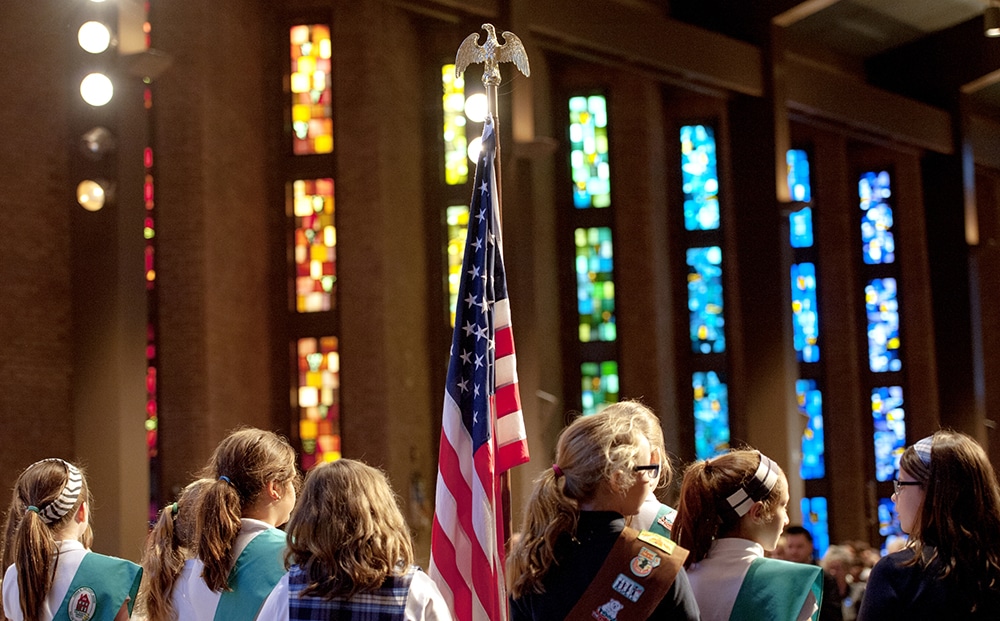
Day at St. Louis Church in Pittsford, N.Y. CNS photo/Mike Crupi, Catholic Courier
1. Is American “patriotism” even intelligible?
The first implication is that “patriotism” may not even be the right name for an attitude of loyalty to the United States. In 1984, noted moral philosopher Alasdair MacIntyre gave the annual Lindley Lecture at the University of Kansas, entitled, “Is Patriotism a Virtue?” For my purpose, his answer is not why the lecture is relevant. Rather, MacIntyre raises the question of whether patriotism is even an intelligible category in the United States. He defines patriotism as “a kind of loyalty to a particular nation which only those possessing that particular nationality can exhibit.” This definition would exclude patriotism as a category that can even apply to American loyalty. Arguably, other than displaced and dispossessed indigenous peoples, we Americans do not “share a particular nationality.” Even though often many generations removed, we are a country of disparate nationalities. Loyalties to these heritages often make greater moral and sentimental claims upon us than our identities as American citizens. This is not, of course, to suggest that we Americans cannot exhibit an attitude toward the United States that has many of the same qualities of patriotism and its attendant virtues (if that’s the right word). But it is difficult to call it “patriotism.”
In contrast to patriotism, MacIntyre suggests an “attitude” by which people are “protagonists of their own nation’s causes because and only because, so they assert, it is their nation which is the champion of some great moral ideal.” This includes Americans “who claim that the United States deserves our allegiance because it champions the goods of freedom against the evils of communism.” I agree with MacIntyre’s definition of patriotism, as well as his contrast between patriotism and whatever we might call the attitude that he associates with loyalty to the moral principles enumerated in the Declaration of Independence. Again, this is not to say that we Americans are not capable of patriot-like impulses. Nor is it to suggest that the United States is devoid of attributes that are the proper objects of those impulses. But MacIntyre’s argument complicates how we think about those loyalties, especially as Catholic Christians.
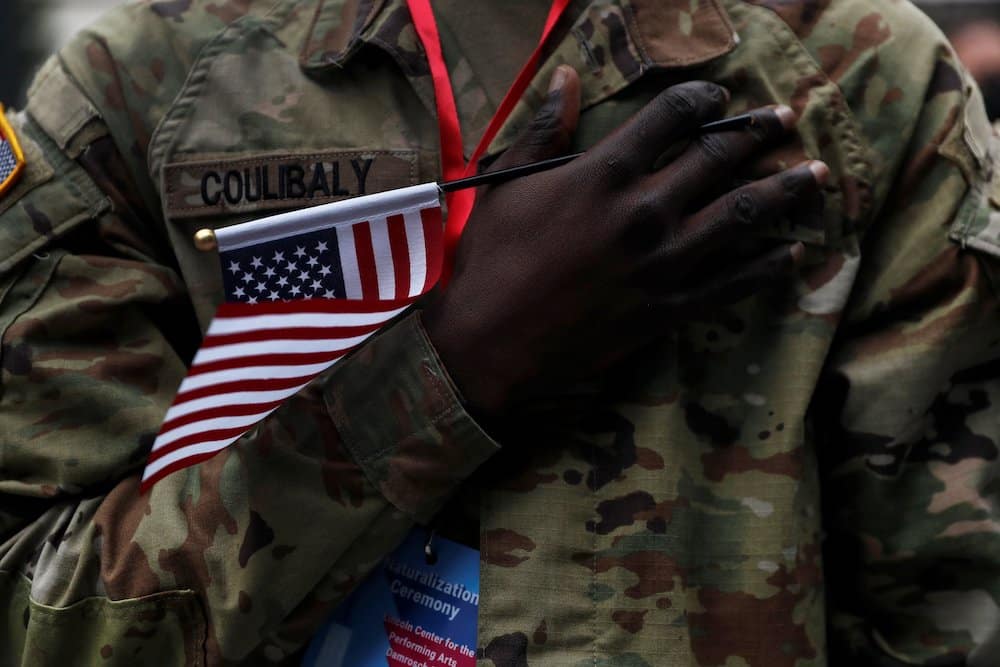
2. Anyone may consent
This brings us to the second implication of the unique founding of the United States. Because no linguistic, ethnic, racial or other inherent demographic characteristic is intrinsic to commitment to the U.S., no one is naturally excluded from either citizenship or the possibility of patriot-like loyalty. (I say “naturally” excluded because, of course, criteria for citizenship may be established by legislation. Even so, U.S. citizenship is defined by commitment to a set of ideas and the nation that purports to uphold them.) Commitment to a moral idea does not require that you speak a certain language, share a particular ethnic heritage, or have a certain skin shade. Loyalty is intellectual assent to a set of moral propositions and the regime that protects them. It is a voluntary, contractual agreement, unconstrained by any sense of natural bonds or allegiances. One can withdraw consent for any or no reason. One cannot change one’s ethnic heritage, however. Thus, the kinds of inchoate attachments to heritage or cultural esteem that attend more traditional forms of national patriotism are not a part of American loyalty or devotion. No sense of national pride plays a role in intellectual commitment.
Of course, over the nearly 250 years since the Declaration, the United States has developed a highly complex and diversified body of political, legal and regulatory institutions. Many people consider this progress to be consistent with the moral principles of the founding, properly understood through a lens of historical development. I’ll call this the “Development Theory.” From the perspective of the Development Theory, the growth of government is a necessary corollary of the protection of our unalienable rights. And, of course, adherents to the Development Theory believe that we may (and have) discovered additional particular rights that are at least consistent with the general rights enumerated in the Declaration and (later) the U.S. Constitution. Loyalty to the founding principles, therefore, demands loyalty to the growth of the laws and regulations that protect the developing body of rights. From the perspective of the Development Theory, people who dissent from the current state of affairs are really rejecting the founding principles. These dissenters would be considered unpatriotic to their progressive adversaries, the Development Theorists.
Because no linguistic, ethnic, racial or other inherent demographic characteristic is intrinsic to commitment to the U.S., no one is naturally excluded from either citizenship or the possibility of patriot-like loyalty.
In the view of many others, however, growth of these legal and regulatory institutions has been at the cost of betraying the moral theory at the nation’s founding. I’ll call this the “Corruption Theory.” One might subscribe to the original moral doctrine, but determine that the U.S. has compromised, perverted or abandoned that doctrine. When this occurs, loyalty to the U.S. is perfectly consistent with harsh criticism of the prevailing state of affairs. In the view of the Corruption Theorists, in fact, authentic loyalty demands condemnation of those institutions that are not consistent with, or even corrosive of, the founding principles as they understand them. One is not disloyal to the nation, in such a case, but rather critical of its abandonment of the ideals upon which it was founded and which it continues to profess. For the Corruption Theorists, the Development Theorists are disloyal because these developments are not consistent with founding principles.
Of course, this is not an exhaustive taxonomy of attitudes about the founding or the growth of the federal government and its regulatory agencies. There are variations on the theme, for example, that it was a bad idea at the beginning. Some criticize the Development Theory, but do not subscribe to the Corruption Theory. Others celebrate the Corruption Theory, but precisely because, in their view, the founding principles should have been abandoned for something else. This is not the place to treat these variations. It is enough, however, to point out that they further complicate what it means to be patriotic to a country founded upon consent to an idea rather than organic national identity.
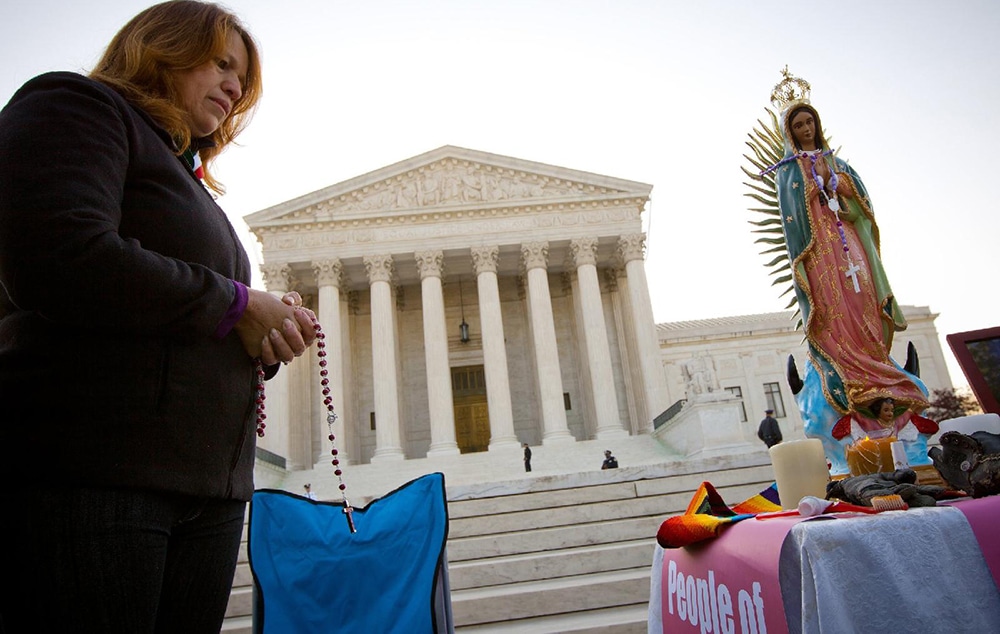
3. But can everyone consent?
This brings me to the third implication of the United States as founded upon a moral idea rather than a set of natural attachments. Must one agree with that idea to be a loyal American? If the United States is founded upon a moral theory (or set of moral principles), can one have patriot-like attitudes if one does not give intellectual assent to the theory or principles? If the theory is all there is, and one dissents from the theory, what is left? Does it leave one as politically homeless? Or worse, a traitor? And if that is the case, what posture should one take to questions of citizenship and loyalty to national interests?
This is not idle conjecture. For example, a considerable body of political philosophy has been developed in recent years that calls into question the very legitimacy of the individualist moral philosophy at the heart of the American founding. Sometimes called “integralism” or (more broadly) “post liberalism,” proponents of these theories argue that the moral and political ideals upon which the United States is founded are inconsistent with a Catholic understanding of the human person. The moral anthropology that underwrites a regime of individual rights, this school of thought contends, is in tension (if not incompatible) with the Catholic understandings of solidarity and common good. If this is the case — if the U.S. is founded upon the rejection of the most fundamental principles of Catholic moral theology — is it possible to be a loyal citizen at all? Or must Catholics live as aliens in the very place we call our political and (at least by analogy) national home?
| A Pope’s Advice on American Democracy |
|---|
|
“Democracy serves what is true and right when it safeguards the dignity of every human person, when it respects inviolable and inalienable human rights, when it makes the common good the end and criterion regulating all public and social life. But these values themselves must have an objective content. Otherwise they correspond only to the power of the majority, or the wishes of the most vocal. … America: may your trust always be in God and in none other.” — Pope St. John Paul II, during his 1995 apostolic journey to the United States |
Of course, to reject the moral principles of the founding is not necessarily to reject every political, legal, regulatory or even cultural institution that has grown over the last two-and-a-half centuries. Good institutions may emerge even despite the moral or philosophical obstacles that impede them. Even a blind pig can find an acorn. One is not necessarily “anti-American” even if one has fundamental philosophical or theological objections to the moral foundations of the country. More importantly, good people can rise above even bad principles. But, if the moral theory of the founding is indeed contradictory to the Catholic doctrine of the human person, we should not be surprised if the theory is corrosive of the doctrine. If that is the case, suspicious vigilance rather than affirmative loyalty should be our fundamental posture toward America. And the onus should be on the person who contends that this corrosiveness is a departure from the moral theory rather than the ineluctable result of it.
Moreover, even if one disagrees with the agenda of the integralist or post-liberal school (or any other Catholic criticism of the American regime), its critique serves an important purpose for all Catholics who are concerned about the possibilities and limitations of patriot-like loyalty to this or any nation. Catholics must always be vigilant about commitment to anything that is not the Gospel. This is especially the case when those commitments involve questions of fundamental moral principles, rooted in particular philosophical or theological schools. Whether and to what extent the principles at the heart of the American founding are compatible with Catholic faith and practice are perennial questions. This article is not going to resolve them. But when we forget or ignore them, we expose ourselves to embracing an idol. The risk of bowing to an idol is inversely proportionate to its conspicuousness. It is a risk to which we often fall when we forget the critical distinction between loyalty to nation and faithfulness to the Gospel.
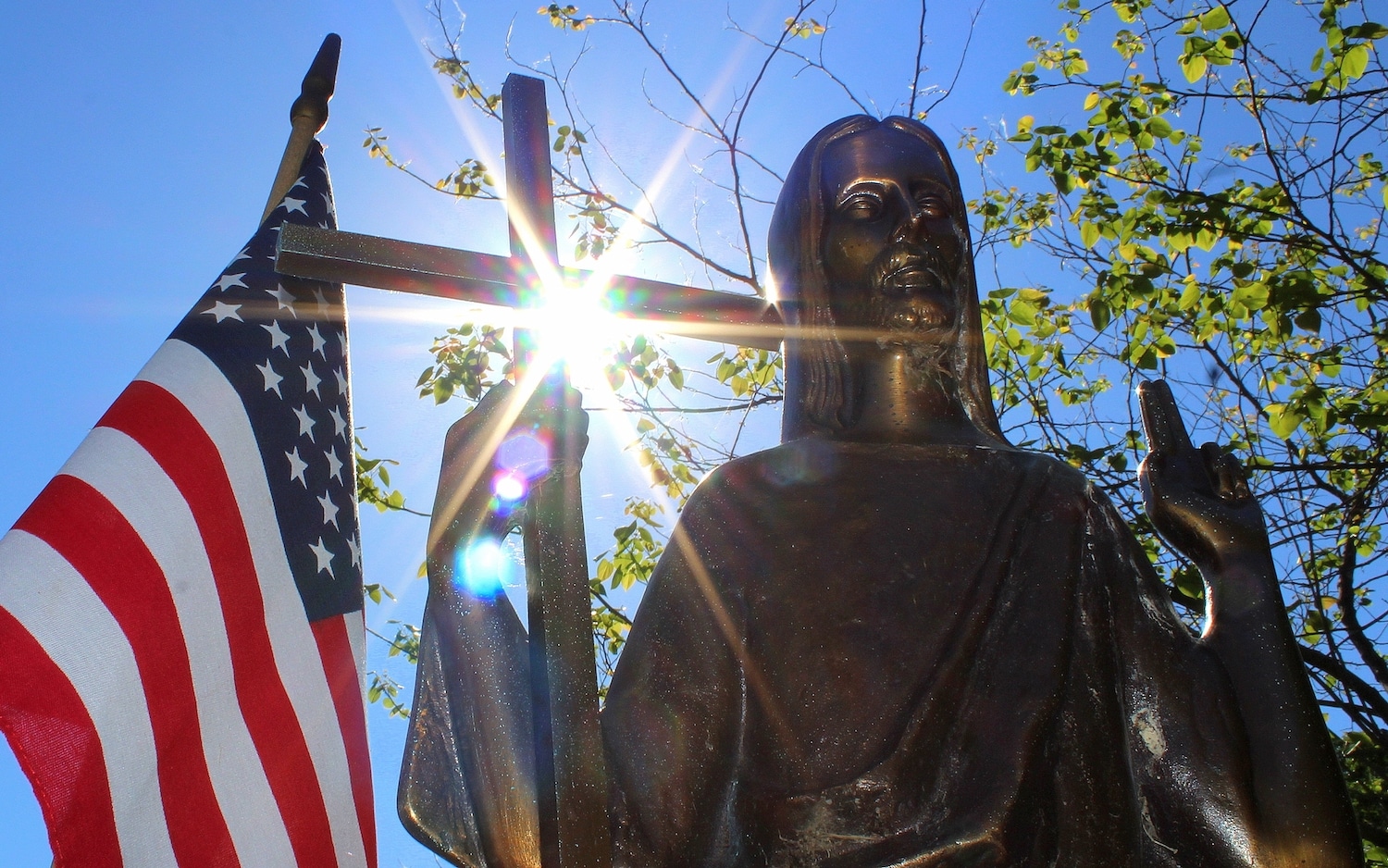
Is American democracy compatible with Catholicism?
What, then, is a Catholic to make of America, especially around Independence Day when we collectively set aside all doubts to celebrate the founding as unambiguously good? The famous American priest and political theorist John Courtney Murray, S.J., suggested a helpful and hopeful answer to the question in his 1960 book, wonderfully entitled, “We Hold These Truths: Catholic Reflections on the American Proposition.”
In a passage from the foreword to “We Hold These Truths,” Father Murray observed, “The question is sometimes raised, whether Catholicism is compatible with American democracy. The question is invalid as well as impertinent; for the manner of its position inverts the order of values,” he continued. “It must, of course, be turned round to read, whether American democracy is compatible with Catholicism.” Murray’s formulation of the issue is helpful for our consideration of the problem of loyalty to the United States, but it is not dispositive.
Even if American democracy is compatible with Catholicism, it does not necessarily follow that Catholics should — or even can — be patriots (even if by analogy). For example, we might conclude that there are aspects of the American political foundation that, on balance, do not make the United States fundamentally hostile to Catholic faith and practice. But if this is the most we can say, it hardly inspires patriotic devotion. It may, however, be the best we can do in admiring and even embracing the good traditions and institutions that can be identified with American political life, while at the same time preserving the integrity of our witness as Christian disciples.
Put another way, perhaps we Catholics should try to reimagine patriotism as an offer of comity or pragmatic compromise. This allows us to be good civic citizens, participating in the social and political life of the nation to the extent that such participation is compatible with our faith. It allows us sincerely to celebrate aspects of American political life that are not inconsistent with Christian discipleship. We might even find aspects of the moral theory at the heart of the founding that we can advance in good faith. But in doing so, I suggest, we will never fully embrace unqualified patriotic devotion. To do so would be to collapse the critical distance and divert the wary eye that we must always maintain, such that we do not begin to confuse being a good American with being a faithful Christian. We can be both, but they are not the same thing. And as faithful Christians we must always be witness to the tensions inherent in American loyalty, whether it is called patriotism or something else.
Father Murray posits this proposal by suggesting that we consider the moral principles of the American founding as “articles of peace,” rather than “articles of faith,” framing his discussion around the specific rights enumerated in the First Amendment to the U.S. Constitution. Some people read into the First Amendment “certain ultimate beliefs … with regard to the nature of religion, religious truth, the church, faith, conscience, divine revelation, human freedom, etc.,” he suggests. “In this view these articles … are dogmas, norms of orthodoxy, to which one must conform on pain of some manner or excommunication,” he continues. “They are true articles of faith. Hence it is necessary to believe them, to give them a religiously motivated assent.” This is not to suggest that these people all agree with the practical implications of their faith. “Those who dogmatize about these articles do not usually do so with all the clarity that dogmas require,” Murray drolly observes. Both Development and Corruption theorists may belong to this faith, but they have irreconcilable opinions about what that entails. We all know people who Father Murray describes. They view the alleged rights upon which the U.S. is built as akin unto sacred doctrine, worthy of religious devotion.
Not surprisingly, Father Murray argues that we Catholics cannot embrace the moral and political principles of the First Amendment (and the more general doctrines of which they are species) as articles of faith. “[T]he only tenable position” is that these principles “are not articles of faith but articles of peace. … They are not true dogma but only good law. That is praise enough,” Father Murray contends. “This, I take it, is the Catholic view.” Of course, some may agree that the principles are not articles of faith, but disagree even that they are “good law.” That discussion is for another time. But Father Murray’s suggestion that we take the moral principles as articles of peace is helpful for us Catholics who understand that we may live (uneasily) under the moral foundations of the U.S., but never really embrace them with unbridled enthusiasm.
American morality and Catholic doctrine
Indeed, I believe that we must heed Father Murray’s conclusion that taking these principles as articles of peace is the “Catholic view.” My continuing concern, in fact, is that this even must be said. Too many of us uncritically embrace the moral foundations of the United States without doing the hard work of asking whether or to what extent they are in tension with Catholic doctrine. Even worse, some believe and argue that the founding principles should be embraced as articles of faith, as though they are divinely inspired corollaries of Christian moral theology. As I suggest above, this is a dangerous — and perhaps idolatrous — game. But it is one that we see played out in our current political culture.
As we observe Independence Day 2023, I suggest that we take a step back to consider both the demands of the doctrines of our faith and the competing demands of American citizenship. Perhaps the demands can be reconciled. And by no means am I suggesting categorically that they cannot. But if they can be reconciled, something like Father Murray’s distinction between articles of faith and peace is the necessary approach. We do not take the moral theories of the American founding as theological principles, but pragmatically workable propositions for living peaceable lives in a pluralist political culture. If we conceive it this way, we can be America’s good citizens, but God’s faithful servants first.

